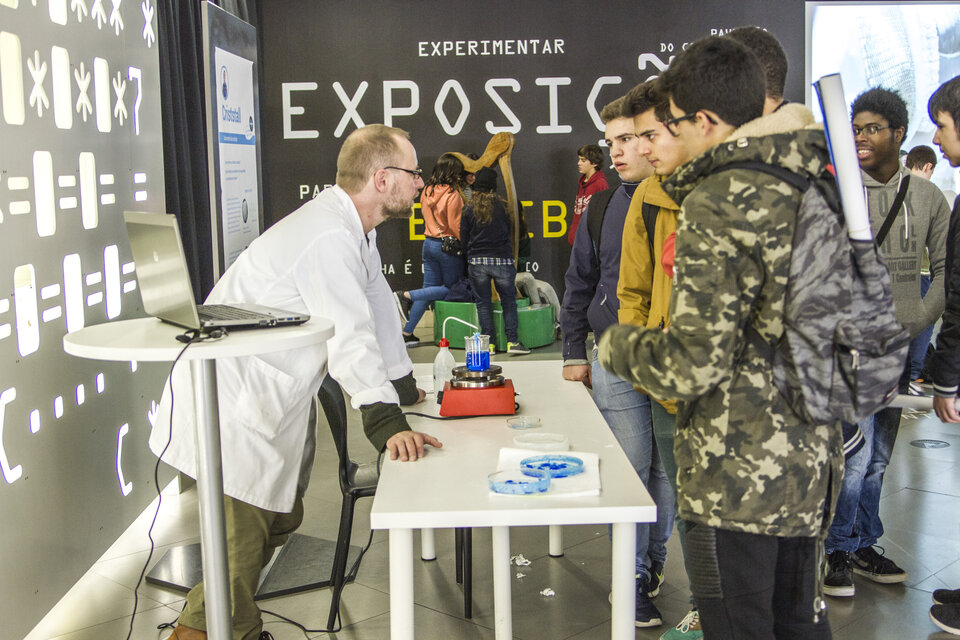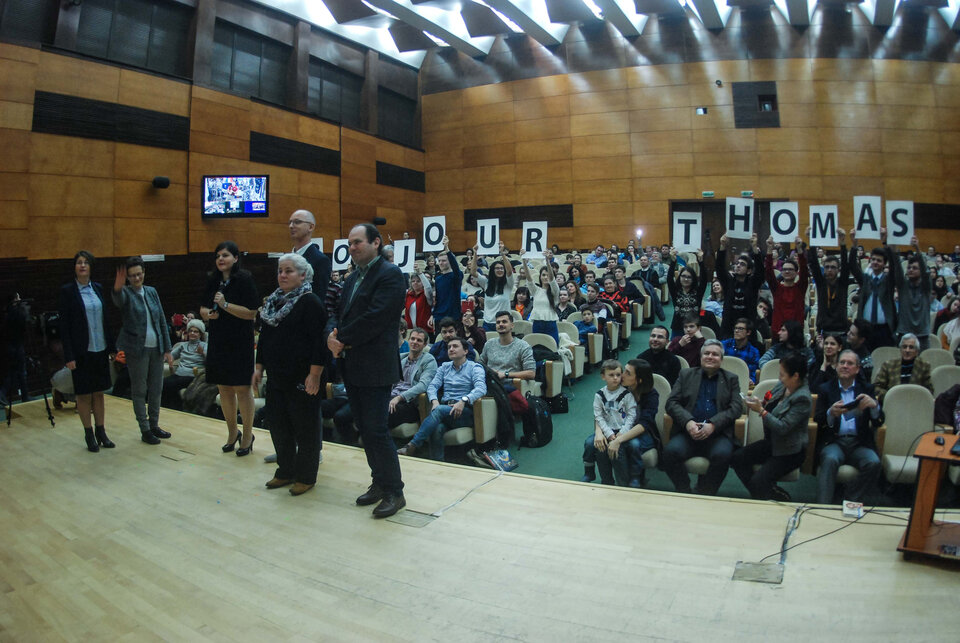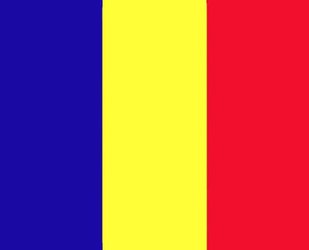Thank you Thomas for a great inflight call!
On Tuesday 24 January, teachers from Romania, Ireland, and Portugal, had the opportunity to talk with ESA Astronaut Thomas Pesquet, who is currently living and working on the International Space Station (ISS).
Hundreds of primary and secondary school teachers and students, as well as space scientists and engineers, gathered at national events in Timișoara, Limerick, and Lisbon to participate in the call with Thomas – the opportunity of a lifetime. Several teachers had the opportunity to ask questions surrounding the theme: space in our daily lives.
"Today was fantastic. I'm really looking forward to taking this back to the classroom and to talk to the students so that they can share this with their friends and family. I'm sure they will have many more questions tomorrow," said Mary Gorky, a teacher from Ireland.
''It’s not every day that we, especially high school students, get to learn things about space in this unusual and fun way. I personally think that the information we learned today covers a little part of the theoretical background regarding the space outside our own planet that each one of us should have. The conversation we had with Thomas, but also with the people who talked to us in the local presentations before the call, as well as the questions that were asked, are the sort of things that spark one’s interes,” said Roxana Drăghia, an 11th grade Romanian student.
“The students were very interested in the possibility of working in space technology in the future, and the event gave me material that can be developed further in the classroom,” said César Marques, one of the many Portuguese teachers attending the event in Lisbon.
In particular, Thomas answered the following questions:

- When we think of space, most people think of exploration. What are some other activities related to space that society may not be aware of?
- What kind of research are you conducting during your Proxima mission that could contribute to new technologies to be used in our daily lives?
- How long does it take for the research, experiments, and new findings done on the ISS to be used in technologies and medicine here on Earth?
- How does your time in space help us to improve methods of caring for sick people here on the ground?
- How do you test for water and bacterial contamination on the ISS? Are these testing methods also used on Earth for other purposes?
- When a natural disaster happens on Earth, can you see it from space? Is there a way that you or ESA can send a warning back to Earth?
- What new technologies related to navigation are being used on the ISS and in space, which can benefit us here on Earth?
- Do you think it is possible to live in a completely self-sustainable environment in space? Are there any technologies from Earth that are helping this become a reality?
- What do you think is one of the most significant discoveries or inventions for society created from research carried out in space, and in particular, on the ISS?
- I have heard that astronauts’ eyesight can change in space. Will the research done related to this have other applications, such as helping prevent people on Earth from losing their sight?
Watch the recording of the live-streamed inflight call here.
About the local events

The events in each country were coordinated by three of the European Space Education Resource Offices (ESERO): ESERO Romania, ESERO Ireland, and ESERO Portugal.
Romania: the event took place in Universitatea de Vest, Timișoara; Ireland: the event took place in Limerick Institute of Technology, Limerick; and Portugal: the event took place in Pavilhão do Conhecimento Science Centre, Lisbon.
In addition to the inflight call, the local events featured a range of activities, including talks from national space experts about the many benefits of space technologies, exploration, and research, encouraging teachers and students to explore how space contributes to the advancement of society through spin-offs and innovation, promoting international cooperation, and providing inspiration.
Background

The inflight call with Thomas Pesquet is part of a vast range of educational activities organised by ESA’s Education Office and jointly delivered by its ESERO project. There are currently 10 operational ESERO Offices across Europe, covering 13 ESA Member States. ESA’s ESERO project is a collaboration between ESA, national space agencies, and science education partners.
ESEROs design, develop, and disseminate classroom resources – all tailored to the national school curricula and language - which make use of space as a rich and inspirational context for teaching STEM subjects. In addition, they offer teacher training workshops and conferences for both primary and secondary school teachers, and support educational hands-on projects in their country. Through their activities, ESEROs also raise awareness about STEM-related career prospects, particularly in the space sector, and promote the importance of space in our daily lives.







